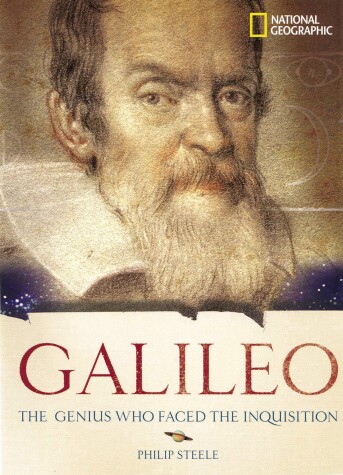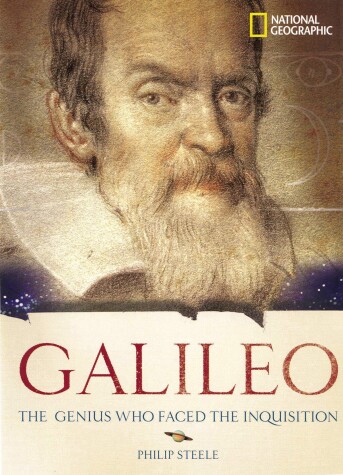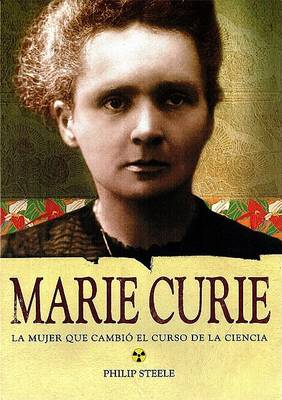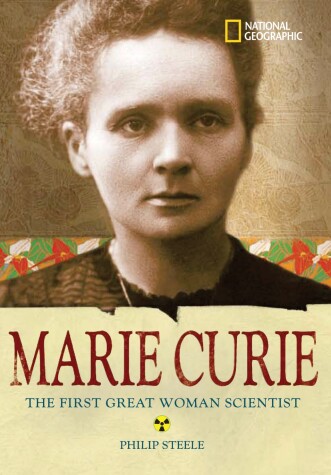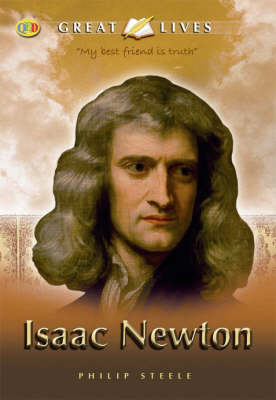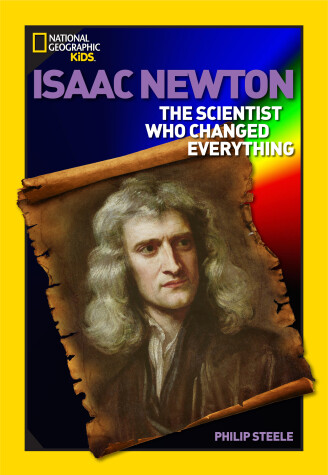National Geographic World History Biographies
6 total works
Galileo made the first effective use of the refracting telescope to discover important new facts about astronomy. His observations led him to support Copernicus's claim that Earth and the other planets circled the sun. This conflicted with the teachings of the Catholic Church, and brought Galileo before the judges of the Inquisition. He spent his final years under house arrest.
Galileo's genius lay in the way he approached scientific problems. He reduced problems to simple terms on the basis of experience and common-sense logic. Then he analyzed and resolved the problems according to simple mathematical descriptions, thus opening the way for the development of modern mathematical physics.
National Geographic supports K-12 educators with ELA Common Core Resources.
Visit www.natgeoed.org/commoncore for more information.
Galileo's genius lay in the way he approached scientific problems. He reduced problems to simple terms on the basis of experience and common-sense logic. Then he analyzed and resolved the problems according to simple mathematical descriptions, thus opening the way for the development of modern mathematical physics.
National Geographic supports K-12 educators with ELA Common Core Resources.
Visit www.natgeoed.org/commoncore for more information.
Galileo made the first effective use of the refracting telescope to discover important new facts about astronomy. His observations led him to support Copernicus's claim that Earth and the other planets circled the sun. This conflicted with the teachings of the Catholic Church, and brought Galileo before the judges of the Inquisition. He spent his final years under house arrest.
Galileo's genius lay in the way he approached scientific problems. He reduced problems to simple terms on the basis of experience and common-sense logic. Then he analyzed and resolved the problems according to simple mathematical descriptions, thus opening the way for the development of modern mathematical physics.
National Geographic supports K-12 educators with ELA Common Core Resources.
Visit www.natgeoed.org/commoncore for more information.
Galileo's genius lay in the way he approached scientific problems. He reduced problems to simple terms on the basis of experience and common-sense logic. Then he analyzed and resolved the problems according to simple mathematical descriptions, thus opening the way for the development of modern mathematical physics.
National Geographic supports K-12 educators with ELA Common Core Resources.
Visit www.natgeoed.org/commoncore for more information.
"This short book is written in a clear, readable style, detailing the events of Marie’s life that will be of interest to teen readers... It will be an excellent and accessible resource for libraries. Readers will find the prose engaging and Marie’s story interesting and inspiring." —VOYA
National Geographic supports K-12 educators with ELA Common Core Resources.
Visit www.natgeoed.org/commoncore for more information.
National Geographic supports K-12 educators with ELA Common Core Resources.
Visit www.natgeoed.org/commoncore for more information.
Marie Curie was the first person to receive two Nobel Prizes for science, and her work still influences our understanding of physics, medicine, and chemistry.
Born Marja Skodowska in Poland in 1867, she studied in Paris, France, where she changed her name to Marie. In 1895, she married Pierre Curie, and the couple's pioneering work on the invisible radiation given off by uranium lead to the discovery of radioactivity. Marie Curie later discovered the elements radium and polonium. She died in 1934, following extensive exposure to radioactivity.
This lively and engaging biography brings the reader into Marie Curie's world through personal diaries, school reports, family photos, and revealing quotations.
National Geographic supports K-12 educators with ELA Common Core Resources.
Visit www.natgeoed.org/commoncore for more information.
Born Marja Skodowska in Poland in 1867, she studied in Paris, France, where she changed her name to Marie. In 1895, she married Pierre Curie, and the couple's pioneering work on the invisible radiation given off by uranium lead to the discovery of radioactivity. Marie Curie later discovered the elements radium and polonium. She died in 1934, following extensive exposure to radioactivity.
This lively and engaging biography brings the reader into Marie Curie's world through personal diaries, school reports, family photos, and revealing quotations.
National Geographic supports K-12 educators with ELA Common Core Resources.
Visit www.natgeoed.org/commoncore for more information.
Born in England in 1643, Isaac Newton grew up in the age when Renaissance thinkers were challenging accepted ideas throughout Europe. Fascinated by all earthly science, Newton developed laws of motion and universal gravitation which also furthered our understanding of the movement of celestial bodies. This vibrant biography profiles the famed physicist as an acclaimed mathematician, astronomer, alchemist, philosopher, and inventor as well. Readers will discover the genius who inspired Alexander Pope to write,
"Nature and nature's laws lay hid in night;
God said 'Let Newton be' and all was light."
National Geographic supports K-12 educators with ELA Common Core Resources.
Visit www.natgeoed.org/commoncore for more information.
"Nature and nature's laws lay hid in night;
God said 'Let Newton be' and all was light."
National Geographic supports K-12 educators with ELA Common Core Resources.
Visit www.natgeoed.org/commoncore for more information.
Born in England in 1643, Isaac Newton grew up in the age when Renaissance thinkers were challenging accepted ideas throughout Europe. Fascinated by all earthly science, Newton developed laws of motion and universal gravitation which also furthered our understanding of the movement of celestial bodies. This vibrant biography profiles the famed physicist as an acclaimed mathematician, astronomer, alchemist, philosopher, and inventor as well. Readers will discover the genius who inspired Alexander Pope to write,
"Nature and nature's laws lay hid in night;
God said 'Let Newton be' and all was light."
National Geographic supports K-12 educators with ELA Common Core Resources.
Visit www.natgeoed.org/commoncore for more information.
"Nature and nature's laws lay hid in night;
God said 'Let Newton be' and all was light."
National Geographic supports K-12 educators with ELA Common Core Resources.
Visit www.natgeoed.org/commoncore for more information.
